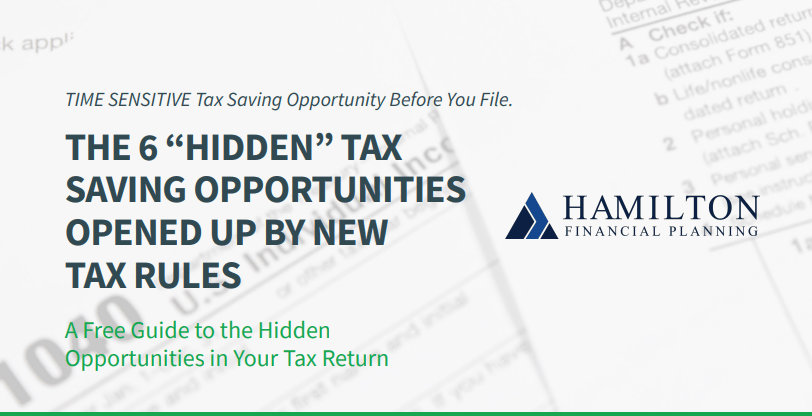
By Scott Hamilton, CFP®
Most people tend to not think too far into the future. But when it comes to how you will allocate your assets and other precious resources, it’s vital to have a plan. If you haven’t done this yet, or haven’t updated your estate plan in a while, you’re not alone. In 2023, only 34% of American adults have an estate plan in place.
You may think this is something you can put off until later, but the consequences of not having a clear and updated estate plan can be severe for your surviving loved ones. Take, for example, the recent dispute over Lisa Marie Presley’s estate. Or Jimi Hendrix, who died without an estate plan in 1970; the battle over his estate continues to this day (more than 50 years later!) all because he had no will.
You can prevent a similar fate and keep your legacy intact by starting or updating your plan today. Here are some important considerations when creating a comprehensive estate plan.
Table of Contents
Basic Estate Planning
No matter how big or small your estate is, there are a few important documents everyone should have in place.
Will
A will is the most familiar of the estate planning documents. It spells out your final wishes and names a person or entity to handle your financial affairs upon death. A will is especially important if you have minor children. If you don’t specifically name a guardian in your will, the choice will be made by the court with no consideration for your preferences.
Medical Directive
Also known as a living will, this document describes what type of life-saving intervention you would like and in what situations it should be used.
Health Care Proxy
The last thing you want is to leave your family in the dark regarding important medical information and how you want to be treated in the event of a medical emergency. If there are no documents in place, conflict can arise over who should make the decisions and what course of action should be taken. This document identifies a specific person who is authorized to make medical decisions on your behalf. It can be used in conjunction with a medical directive, or it can be used on its own.
Power of Attorney (POA)
Covering everything else outside of medical rights, this document allows an authorized individual to make decisions on your behalf, including financial and business decisions. There are several types of POA; the choice of which one to use is highly personal. Make sure to involve whomever you choose to act as your designated agent—they should be well aware of the responsibility and willing to take on the role.
Trusts
Though wills are the most well-known estate planning vehicle, trusts are the true lynchpin. This is because they save both time and money by removing assets from your estate and avoiding probate. It operates as a separate entity that holds all your assets while you’re alive, thereby removing them from your estate. The trust’s assets will then be distributed to your beneficiaries following the terms of your trust document, which means your estate will avoid the hassle and expense of probate.
HIPAA Authorization
This document is used when a covered entity (such as a medical office or professional) would need to share your PHI (personal health information) for purposes other than what is typically allowed under the HIPAA Privacy Rule.
Advanced Estate Planning
In addition to the basic estate planning described above, individuals who have estates valued at $10,000,000 or more may want to consider more advanced planning techniques. Currently, an individual can leave an estate up to $12.92 million without being charged estate tax. Of course, there is an unlimited exemption for amounts left to a spouse. If you are nearing this limit, proactive estate planning can help you reduce or eliminate your estate tax liability and take advantage of the portability option available for a surviving spouse, where applicable.
Advanced estate planning can include:
Intentionally Defective Grantor Trust (IDGT)
An IDGT is considered a grantor trust, which means that the individual who sets up the trust is also responsible for the income tax on the trust’s income. The income on trust assets remains in the trust for the benefit of the trust beneficiaries. Once assets are transferred to the IDGT by gift or sale, those assets are removed from the grantor’s estate, as is the growth on those assets, and will not be considered for estate tax purposes in the future.
An IDGT is called “intentionally defective” because the trust is created with an intentional flaw that ensures the grantor is still responsible for the income tax on the asset growth even though the assets are no longer in the grantor’s estate. Because of this “flaw,” the assets in the trust can grow without the burden of taxes, and the trust beneficiaries won’t have to pay estate taxes on those assets. In a sense, an IDGT acts to “freeze” the current value of the asset at the time it’s put into the trust.
A great application for using an IDGT is to sell an asset expected to grow at a very healthy rate over time. This will, in effect, allow the growth to occur outside the seller’s taxable estate and “freeze” the value for purposes of calculating estate taxes.
Irrevocable Life Insurance Trust (ILIT)
An ILIT is a separate entity designed to own a life insurance policy and receive the death benefits. A trustee is given control over the policy and will be responsible for carrying out the terms of the ILIT for the benefit of named beneficiaries (typically the insured’s spouse, children, or other family members).
An ILIT is useful because it allows the policy’s death benefits to be excluded from the insured’s taxable estate. The insured may gift (or loan) money to the trustee, who will then use those funds to pay the premiums. When properly designed and administered, a gift to the ILIT may escape the federal gift tax as well.
Spousal Lifetime Access Trust (SLAT)
A SLAT is an irrevocable trust established by one spouse (the grantor spouse) for the benefit of the other spouse (the beneficiary spouse) and perhaps children. The trust is usually funded with a life insurance policy on the life of the grantor’s spouse.
While both spouses are alive, the SLAT may make distributions to the beneficiary spouse and their children for their health, education, maintenance, and support or another ascertainable standard. The trustee may use withdrawals and/or loans from the life insurance policy or other trust assets to make the distributions that would be free of any taxes to the trust or beneficiaries.
Upon the death of the grantor’s spouse, life insurance death proceeds will be paid to the trust. The trust may continue to provide income to the beneficiaries or may terminate and distribute the remaining income and principal to the beneficiaries.
SLATs will remove the trust assets from the grantor’s taxable estate, but the grantor retains indirect access to trust income through the beneficiary spouse.
Grantor Retained Annuity Trust (GRAT)
A GRAT provides the grantor a right to trust income. However, the income is only payable to the grantor for a specific period of time. The grantor will receive fixed annuity payments from the trust. The payments are determined by the current IRC Section 7520 rate, a figure set by the IRS. Any growth that’s higher than the Section 7520 rate is transferred to your beneficiary outside of your estate, thereby avoiding estate taxes. As long as you outlive the term of the trust, the assets will be removed from your taxable estate and your beneficiaries will receive the remaining assets free of tax.
Charitable Remainder Trust (CRT)
A CRT is another type of trust in which you as the grantor retain an income interest in the property placed into the trust. In this case, you can receive income for a certain time or until you pass away. Once the income term expires, the remaining property in the trust is passed to the charity of your choice.
Because the beneficiary of the trust is a charity and the trust is irrevocable, you will receive an immediate charitable deduction to assist with your income taxes. For this reason, it’s best to transfer highly appreciated assets to the CRT to maximize your deduction.
Buy-Sell Agreement
If you own a business, a buy-sell agreement is an important estate planning strategy to consider. It is a legal contract between two or more parties that specifies what happens to a partner’s share of a business if they should die, become incapacitated, retire, or otherwise leave the firm. It is a very important document for those with active business interests, and it is often used as a way to prevent the business from being liquidated or sold to unwanted individuals.
A well-drafted and fully funded buy-sell agreement will allow for business continuity, ensuring that your departure doesn’t cause unnecessary disruptions or financial difficulty. It will also provide for your family financially in the event you pass away or can no longer work.
Whatever your case may be, it’s important to make sure the agreement is properly funded so that the remaining parties will have the cash flow available to purchase your stake. If not, the business may pass to heirs who are unwilling or unable to operate it, leaving your business legacy at risk.
Additional Low-Cost Options
If your estate planning needs are more simple, there are some low-cost options to choose from. Trust & Will is an online company that provides quick, affordable estate planning services for individuals and couples. You simply complete an online questionnaire, download or ship your documents, and have your will notarized. These will-based estate plans can be customized to meet your specific needs.
If you prefer the human element over the online DIY route, some financial advisors may be able to help with your estate planning needs by utilizing software designed specifically for use by advisors to help their clients. This software from Encorestate Plans can simplify and streamline the process of organizing your trust and will documents.
*Note: We do not endorse either of these companies, nor do we receive any financial benefit from recommending them. This information is provided only for your reference and consideration.
Have Questions About Your Estate Plan?
The process of preparing your will and how you will bequeath your assets can be time-consuming and requires careful thought and planning. While it may seem overwhelming, it’s important to not delay getting your affairs in order. We don’t recommend going through this process alone; a trusted financial advisor with experience in estate planning can help reduce much of the stress of this process.
At Hamilton Financial Planning, we can walk you through the estate planning process and help you coordinate with a qualified estate planning attorney. If you have questions about your estate planning options, we would love to hear from you. Schedule a complimentary get-acquainted meeting online or reach out to us at 512-261-0808 or scott@hamiltonfinancialplanning.com.
About Scott
Scott Hamilton is the founder and chief financial officer at Hamilton Financial Planning, a wealth management firm that specializes in providing comprehensive financial planning for retirees. With over 20 years of experience in the financial industry, and having completed over 250 financial plans for retirees across all industries, but mostly the oil and gas industry, Scott is passionate about providing his clients with the tools and insight they need to achieve their financial goals. He has a Bachelor of Business Administration in finance from Texas State University and an MBA in international finance from Pepperdine University. Scott has also been happily married to his wife, Gayle, for over 25 years. To learn more about Scott, connect with him on LinkedIn.

